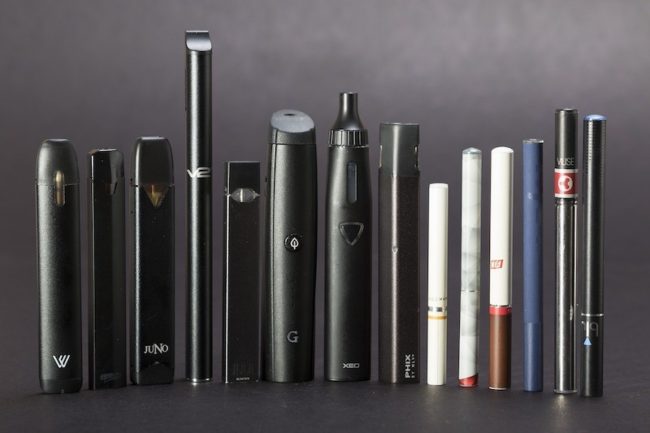The FDA’s newest statement mentioned a potential ban of e-cigarettes that left SMU’s students and faculty doubtful and fearful of the ban’s potential effects.
“With nicotine withdrawals comes anxiety, inability to concentrate, and trouble sleeping,” freshman Victoria Pitruzzello said. “None of those things, especially when combined, make for good grades.”
However, FDA Commissioner Dr. Scott Gottlieb did not mention anything about academic performance in his statement on Sept. 12. Instead, he said the FDA’s main reason for the potential ban is their concern about the negative effects of nicotine on young brains.
“This may create some obstacles for some adults who also enjoy e-cigs,” Gottlieb said. “These are the hard tradeoffs that we’re grappling with. But the youth risk is paramount.”
Gottlieb gave the top five e-cigarette manufacturers 60 days to prove they can keep their products away from minors. The FDA said they will remove the companies’ flavored products from the market if they fail to meet FDA orders.
Many students doubted this ban would prevent people from using e-cigarettes. Junior Grant Hibbard said his peers would either disobey or find ways around the ban.
“I do not think that this ban will effect [sic] campus much,” Hibbard said. “Students will either continue to smoke, or they will find an alternative to satisfy their oral fixation.”
Other adults on campus agreed with Hibbard and said students would keep smoking. Others took their doubts about the ban even further. Dr. Dennis Foster, a Professor of English, was concerned the ban will increase student interest in e-cigarettes.
“Simply because something is banned, it becomes the thing which is desirable,” Professor Foster said. “The ‘no’ becomes the name for the thing that you want.”
The FDA acknowledged this ban would also prevent adults who use the e-cigarettes for their original purpose from using these products. For years, e-cigarettes served as smoking alternatives for adults as they move from smoking tobacco to quitting smoking entirely. Gottlieb said the FDA is willing to sacrifice this transition to save the youth from the negative effects of nicotine.
“The FDA won’t tolerate a whole generation of young people becoming addicted to nicotine as a tradeoff for enabling adults to have unfettered access to these same products,” Gottlieb said.
Feature photo credit:















